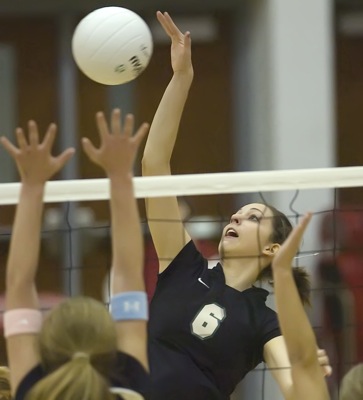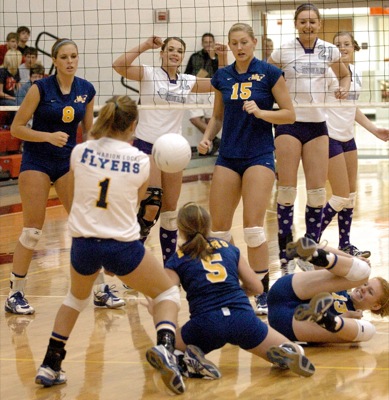Monday, October 22nd, 2007
Medicine working for area teen with 'bug'
By Margie Wuebker
A Marion Local High School student has a confirmed case of a bacterial infection known as Methicillin-resistant Staphylococcus Aureus or MRSA.
Unlike highly publicized cases of the so-called "superbug," the young man has a strain that is being treated successfully with antibiotics, according to Marion Superintendent Carl Metzger.
"We do have a confirmed case," Metzger told The Daily Standard this morning. "We have determined our student is not a public health risk. He is attending class and doing fine."
School officials were notified Friday by team physician Dr. Jim Schwieterman. He, along with the team trainer and coaches, have been monitoring athletes for possible skin infections. The lone MRSA case was confirmed through a culture with no other problems reported among the district's other 931 students.
Marion Local officials decided to take a proactive approach by notifying the Mercer County-Celina City Health Department and sending home letters to parents. Schools are not required to notify the health department regarding a single case, but Schwieterman went ahead and made contact with the blessing of school administrators.
"At this point we have disinfected all of our locker rooms and the weight room to kill any bacteria that may have infested itself in these areas," Metzger said. "We clean and disinfect our buildings every day so there are no plans to change our routine."
He assures school district residents they will be updated on any new developments, pointing out there should not be cause for alarm or shutting down school buildings. National media carried stories of Virginia shutting down 21 schools after a 17-year-old boy reportedly died of MRSA.
Joyce Jansen, director of nursing and communicable disease nurse at the health department, said MRSA is transmitted by skin-to-skin contact. Once found almost exclusively in hospitals and nursing homes, the new community acquired form is becoming more common among children and adults and those active in sports.
The infection can look like a sore that does not heal, a honey-crusted lesion or an inflamed hair follicle. There may be a watery discharge. Anyone spotting suspicious areas should contact their physician.
Marion Local is apparently the first school district in the area with a confirmed MRSA case, according to Jansen. There have been nearly 90 cases statewide. However, schools across the state have been monitoring the situation in light of recent reports.
The communicable disease nurse said staphylococcus aureus - a common germ that lives on the skin - has been around for years. However, the incidence of staph skin infections has doubled since 2001. The new staph strain passes easier from person to person and from hard surfaces to person.
Plans for an informational meeting involving coaches and staff members had been underway prior to news of the Marion Local case, according to Jansen. The session will be offered at 7 p.m. Tuesday at Celina High School through a partnership involving the health department and Celina City Schools.
Steps to prevent infections:
With outbreaks involving staph skin infections becoming more common within group settings, the Mercer County-Celina City Health Department offers the following personal care guidelines:
• Wash hands frequently.
• Carry alcohol-based hand gel to sanitize your hands if soap and water are not available.
• Cover your nose and mouth with a tissue when you cough or sneeze. Throw the tissue in a wastebasket and wash your hands.
• Take a bath or shower every day. This will help reduce the amount of bacteria on your skin.
• Keep fingernails short to keep bacteria from growing under and on your nails.
• Change your bed sheets and towels regularly. Also change clothes daily and wash them before wearing again.
• Do not share towels, razors, toothbrushes or other personal items.
• Take good care of your skin because any crack or break can allow bacteria to enter and cause infection. If you get a cut or scrape, clean it with soap and water and then cover it with a bandage.
• Do not poke or squeeze any sores.
• Get medical care at the first sign of infection in a cut, such as redness, swelling, pain or pus.
- Margie Wuebker



